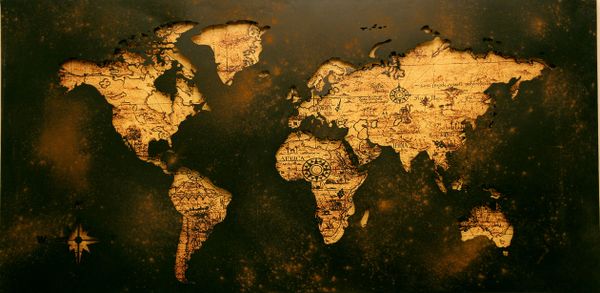.
Africa is the second most populous continent on the globe, with about 16% of the world’s population. The population of Africa is growing fast: According to the UN, more than half of global population growth between 2015 and 2050 is expected to occur in Africa.
Africa is rich in natural resources, but it is still home to the majority of the world’s least developed countries. 43% people in Africa live on less than $2 a day. Although the proportion of people living in poverty has improved in recent years, statistics don’t capture the widening inequality gap as Africa’s elite minority grows in numbers and in wealth.
Africa has more countries than any other continent in the world. Africa is the world’s second-largest continent in terms of size, and is the world’s oldest populated area.
There are 54 countries are there in Africa. 37 of Africa’s 54 countries were home to offshore companies mentioned in the Panama Papers.
Businesses from almost every country in Africa using offshore companies in the Panama Papers. The leaked files include nearly 7,000 records of shareholders and company owners linked to the continent.
Africa’s natural assets are world-renowned: from its unique wildlife and landscapes that attract millions of visitors, to its vast oil and mineral reserves.
International tourism contribute to Africa’s economy (2015) approx about 47 billion. This would buy you about 5 million first-class return flights to and from one continent to another.
The oil industry contributes to Africa’s economy (percentage of GDP, 2013) approx 3% of the entire world’s GDP, and is approx 6%.
There is $9 billion diamond exports from Africa. The average export price for 1 carat of African rough diamond was $125.
Tourists in, wealth funneled out.
Visitors to Africa’s south and east often hope to catch a glimpse of hippos in Tanzania or lions in South Africa. But sometimes their tourist dollars go to businesses that use offshore structures. 6 countries were found to do hoard the “illegal offshore wealth” by safari businesses that used offshore companies in the Panama Papers. Eygpt, South Africa, Botswana, Zambia, Kenya, Swaziland.
How do they work? Safari tours were conducted in Zimbabwe. An offshore company was registered in the British Virgin Islands. A bank account linked to the business was in the Isle of Man
Oil riches taken out of Africa
Africa is one of the world’s foremost oil exporters. But the continent doesn’t always see the full benefit: more money is siphoned out of Africa from its oil industry than any other sector.
Out of Africa’s top ten oil-producing countries, 6 countries were found offshore companies in the Panama Papers.
Egypt, one of the top ten oil-producers, is already selected as a safari country.
The reliance of many African countries on oil, which in some cases accounts for 95% of exports, makes these countries vulnerable to illicit financial flows — Congo, Angola, Sudan, Egypt, Nigeria, Algeria, Libya
The fraud consists of the use of SHELL COMPANIES established in TAX HAVENS, without any true substance and whose SOLE OBJECT was to hold assets in Gabon and with the intention to sell them, with the primary goal of NOT BEING SUBJECT to Gabonese TAXES on the profits resulting from the sale.
Jewels of the offshore industry
The diamond industry has seen its share of scandals, as well as numerous links to complex offshore financial structures.
https://twitter.com/GroundTruth/status/759102471679647745
Congo tops the list. Studies have found close links between countries in Africa with big mining sectors and higher levels of inequality. Even more biz, like crocodile skins of Mozambique & exotic flower trade tops the list.
Why does it matter?
In the words of former South African president Thabo Mbeki, the wealth that is siphoned out through offshore companies and tax havens is money that is essential to Africa’s development.
“These funds, which are more than the annual amounts the continent receives in donor aid, would help us further to push back the frontiers of underdevelopment and poverty.”
Written with inputs from ICIJ.
Keep reading, and don’t forget to subscribe our newsletter, we are penning down so meticulously from every nook and corner of the Internet. Get the latest posts delivered right to your inbox.
Thanks for reading!
